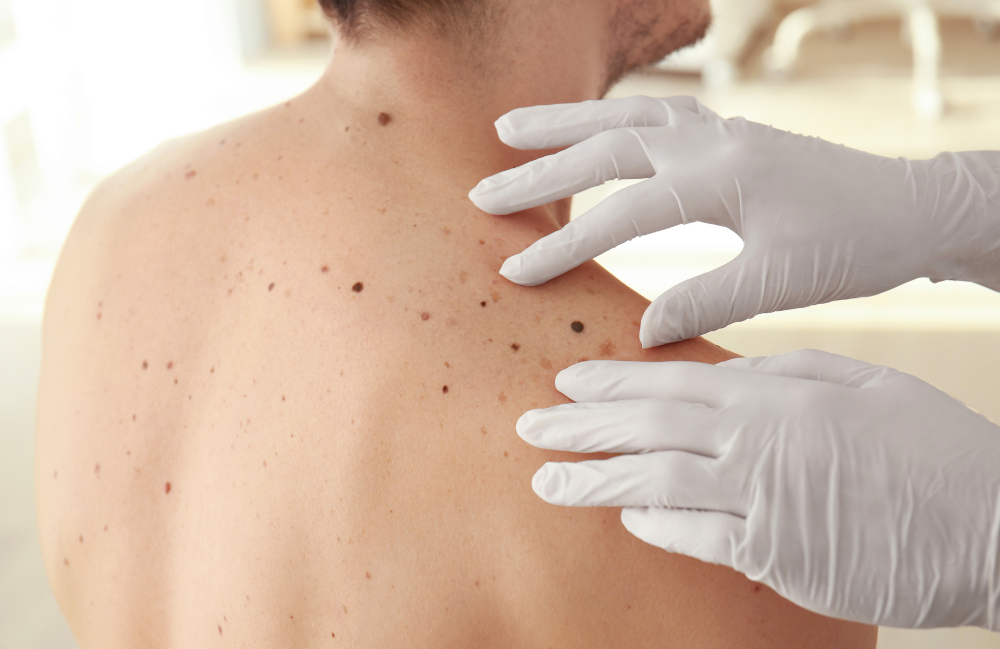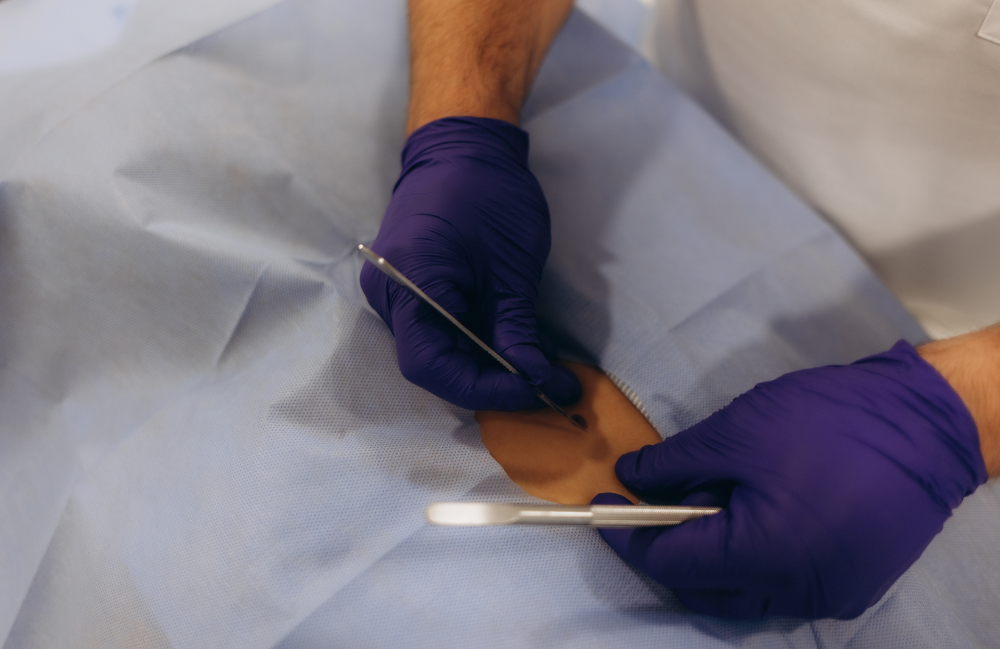
Skin cancer is one of the most common forms of cancer, affecting millions of people worldwide. It occurs when abnormal skin cells begin to grow uncontrollably, often due to excessive exposure to ultraviolet (UV) radiation from the sun or artificial sources like tanning beds.
The key to successful treatment is early detection, and one effective treatment option is skin cancer excision—a surgical procedure that removes cancerous lesions while preserving healthy tissue.
What is Skin Cancer?
Skin cancer is a condition where skin cells grow abnormally, leading to the formation of cancerous lesions or tumors. The three main types of skin cancer are:
- Basal Cell Carcinoma (BCC). The most common form, BCC grows slowly and rarely spreads to other parts of the body.
- Squamous Cell Carcinoma (SCC). This type can be more aggressive than BCC and may spread if not treated early.
- Melanoma. The most dangerous type of skin cancer, melanoma can spread to other parts of the body and is responsible for the majority of skin cancer deaths.
Causes
The primary cause of skin cancer is exposure to UV radiation, which can damage the DNA in skin cells. However, several factors contribute to the development of skin cancer:
- Prolonged sun exposure. Especially without adequate protection like sunscreen.
- Tanning beds. Use of artificial UV light increases the risk of all types of skin cancer.
- Fair skin. People with lighter skin, less melanin, and those who burn easily are at a higher risk.
- Genetic predisposition. A family history of skin cancer can increase your chances of developing the condition.
- History of sunburns. Severe sunburns, especially in childhood, significantly increase the risk of skin cancer later in life.
Symptoms
The signs of skin cancer can vary depending on the type, but common symptoms include:
- New growths or moles. A new mole or unusual growth that changes shape, size, or color.
- Sores that don’t heal. A sore or lesion that doesn’t heal after several weeks.
- Asymmetrical moles. Moles with uneven edges or irregular shapes.
- Changes in existing moles. Any change in color, size, or texture of a mole or lesion should be checked by a dermatologist.
How Skin Cancer Excision Can Help
Skin cancer excision is a surgical procedure that involves removing the cancerous lesion along with a margin of healthy tissue to ensure that all cancer cells are eradicated. The goal of this procedure is to:
- Eliminate cancer cells. Thoroughly remove the affected tissue and prevent recurrence.
- Minimize scarring. The procedure is done carefully to ensure minimal scarring, especially for visible areas like the face.
- Follow-up care. Post-operative care is essential for optimal healing, and regular monitoring is crucial to catch any signs of recurrence or new skin cancers early.
The excised tissue is sent for microscopic analysis to confirm that the cancer has been entirely removed. Skin cancer excision is performed under local anesthesia and is a highly effective treatment for basal cell carcinoma, squamous cell carcinoma, and even early-stage melanoma.

FAQs
How long does skin cancer excision take?
The procedure typically takes 30 minutes to an hour, depending on the size and location of the lesion.
Will I have a scar after skin cancer excision?
While excision may leave a small scar, dermatologists take care to minimize scarring, especially on highly visible areas.
Is skin cancer excision painful?
The procedure is performed under local anesthesia, so patients usually experience little to no discomfort during the surgery.
How can I prevent skin cancer?
Protect your skin from UV radiation by wearing sunscreen, avoiding tanning beds, and covering up during peak sun hours.
How often should I get checked for skin cancer?
It’s recommended to have an annual skin exam, especially if you have risk factors like fair skin or a history of sunburns.
Hear from
Real Patients

Schedule Your Consultation Today
Early detection and treatment of skin cancer are critical to preventing its spread. Schedule a consultation with the experts at Metropolis Dermatology in San Jose, CA, to discuss skin cancer prevention, screening, and treatment options!
